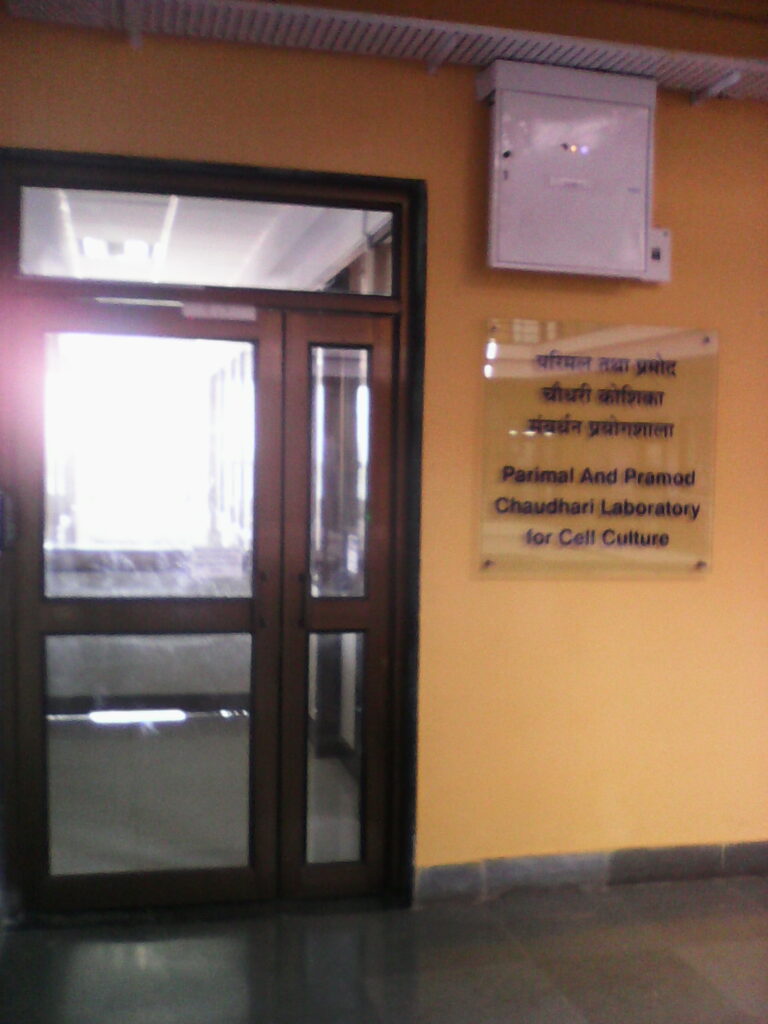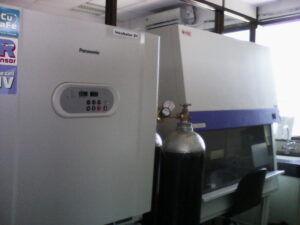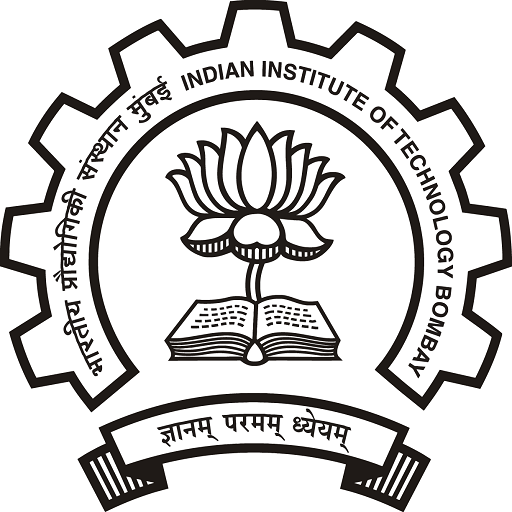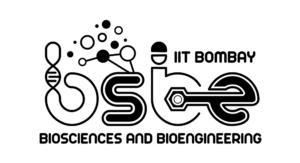Parimal and Pramod Chaudhari Laboratory for Cell Culture
The Cell Culture Lab in the Department of Biosciences and Bioengineering was initiated with a generous donation from Parimal and Pramod Chaudhari of Praj Industries, Pune.
 |  |
A 1200 sq. ft. state-of-the-art tissue culture facility on the 5th floor of the new building has been created to cater to the needs of faculty and researchers. The facility has been named as “Parimal and Pramod Chaudhari Laboratory for Cell Culture” and was rededicated in late 2013. Dr. Pramod Chaudhari visited the department and rededicated the facility, heard about the research being done in the facility and gave a talk about his experiences in the Indian biotechnology industry. His visit was greatly appreciated by the members of the department.
The facility houses four tissue culture laboratories for culturing a wide range of mammalian cells, cancer cells, viruses and protozoan parasites. The facility also includes a microscopy room and a general purpose storage room. The facility is equally helpful for both basic and applied research. It is being used by more than 20 PhD research scholars as well as MSc and MTech students for their project work. Funds from Mr. and Mrs. Chaudhari have been utilized to equip the facility with:
- Ten Class II Biosafety Cabinets
- Eight CO2 incubators
- Two liquid nitrogen storage units
- Inverted microscope
- Table top centrifuges
The facility is used for culturing malaria parasites and mammalian cell lines that are being studied for drug discovery, nanotechnology and microfluidics applications, in addition to basic research questions.
A brief description of the research being carried out in the facility by some of the labs follows:
Kiran Kondabagil: Culturing vaccinia virus and studying the initial cellular events during vaccinia virus infection of various human cell lines.
Swati Patankar: Assays for anti-malarial compounds that target tubulin, studies of organellar trafficking of parasite proteins and understanding the regulation of expression of immune evasion proteins.
Shamik Sen: Cell responses including spreading and contractility are being studied to understand how normal versus cancerous cells respond to alterations in ECM density.
Rohit Srivastava: Cytocompatibility test of various scaffolds (Chitosan embedded with silver nanoparticles) and nanoparticles (e.g. Silver nanoparticles and Quantum dots) synthesized in the lab. Cell attachment studies on these scaffolds are being done.
Prakriti Tayalia: Testing biocompatibility of various synthetic matrices developed in our lab. It is also being used for testing the functionality of microfluidic devices through cell attachment and viability studies so that they can eventually be used for some chemotactic studies.
Forms:

